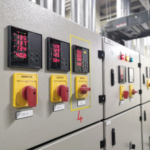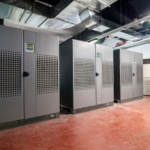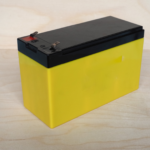Lithium-ion batteries have had significant implications for the lead-acid battery industry. Here are some key points to consider:
Higher energy density: Lithium-ion batteries have a much higher energy density compared to lead-acid batteries. This means they can store more energy in a smaller and lighter package. This advantage has made lithium-ion batteries particularly popular for portable electronics, electric vehicles (EVs), and renewable energy storage systems.
Longer cycle life: Lithium-ion batteries typically have a longer cycle life than lead-acid batteries. They can withstand a larger number of charge-discharge cycles before their capacity significantly degrades. This makes them more durable and cost-effective over the long term.
Faster charging: Lithium-ion batteries can be charged at a much faster rate than lead-acid batteries. This reduces the charging time for devices and EVs, making them more convenient for consumers.
Environmental considerations: Lead-acid batteries contain toxic materials such as lead and sulfuric acid, which pose environmental risks if not handled and disposed of properly. On the other hand, lithium-ion batteries have a lower environmental impact and can be recycled more easily. The push for cleaner and greener technologies has driven the adoption of lithium-ion batteries in various industries.
Cost considerations: Initially, the cost of lithium-ion batteries was much higher than lead-acid batteries. However, with advancements in technology and economies of scale, the cost of lithium-ion batteries has significantly reduced. As a result, lithium-ion batteries have become increasingly competitive in various applications, including automotive, renewable energy, and consumer electronics.
Market shifts: The increasing popularity of electric vehicles and renewable energy systems has driven the demand for lithium-ion batteries. This has led to a shift in the market dynamics, with more investments and research focused on lithium-ion technology. As a result, some manufacturers in the lead-acid battery industry have faced challenges and have had to adapt to changing market demands.
It’s worth noting that lead-acid batteries still have advantages in certain applications where cost, robustness, and reliability are key factors. For example, they are commonly used in applications such as backup power systems, forklifts, and uninterruptible power supplies (UPS). However, the overall trend indicates that lithium-ion batteries are gaining prominence and are becoming the preferred choice in many sectors.





